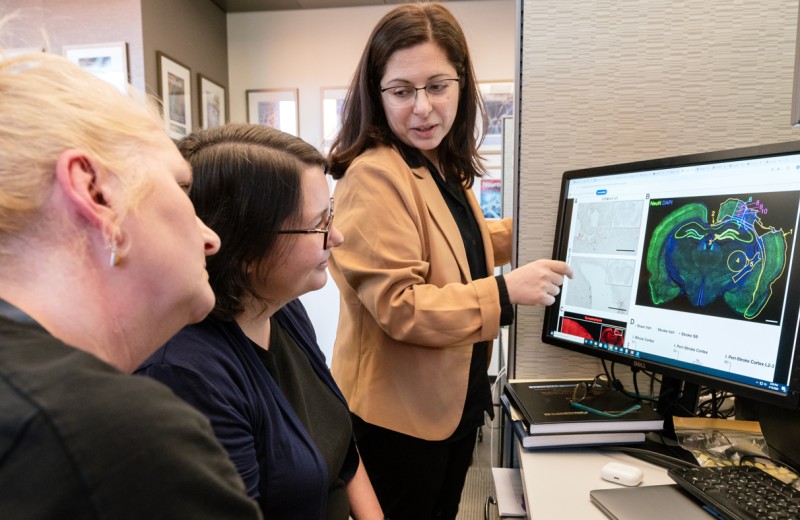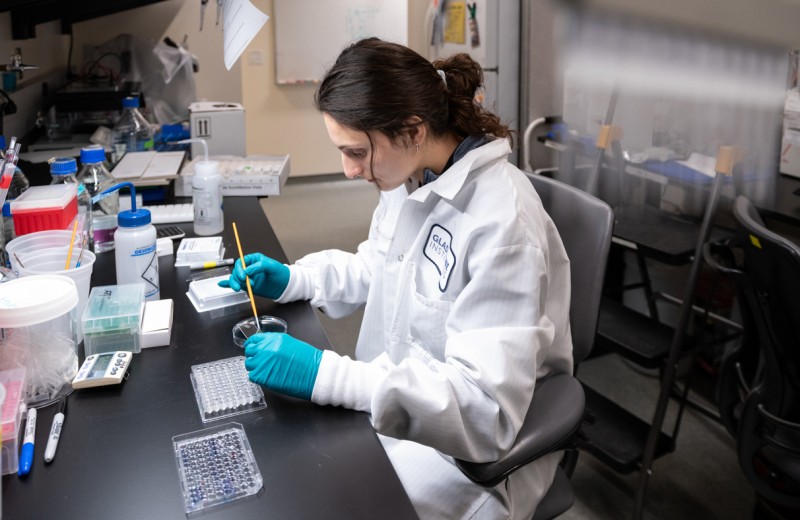Gladstone NOW: The Campaign Join Us on the Journey✕

Dr. Jeanne Paz was awarded the Michael Prize for her contributions to epilepsy research. [photo: Chris Goodfellow]
Jeanne Paz, PhD, an assistant investigator at the Gladstone Institutes, has been awarded the prestigious Michael Prize, honoring her significant contributions to the field of epilepsy. The international prize is given every two years for the best clinical and scientific advancements in epilepsy research and is one of the most highly regarded awards in the field. Dr. Paz will be presented with the award at the International Epilepsy Congress in Istanbul in September.
The prize celebrates Dr. Paz’s discovery that epileptic seizures can be stopped in real-time in rodents using optogenetics—a tool that enables scientists to turn certain cells in the brain on or off with light. Using this technology, Dr. Paz identified key neural circuits that can prevent seizure activity.
“Jeanne’s receipt of the Michael Prize is a great achievement, acknowledging her pioneering analysis of the role of circuit mechanisms in epilepsy,” says Lennart Mucke, MD, director of the Gladstone Institute of Neurological Disease. “We are very proud of her accomplishment.”
Dr. Paz is also an assistant professor of Neurology at the University of California, San Francisco. Before coming to Gladstone in 2014, she was a postdoctoral researcher in the labs of Karl Deisseroth, MD, PhD and John Huguenard, PhD, at Stanford University.
Inside the Brain: Tackling Neurological Disease at Its Roots
Inside the Brain: Tackling Neurological Disease at Its Roots
For World Brain Day, discover some of Gladstone’s latest breakthroughs in neurological research.
Gladstone Experts Research (Publication) Alzheimer’s Disease COVID-19 Parkinson’s Disease Neurological Disease Akassoglou Lab Corces Lab Huang Lab Mucke LabStem Cell Therapy Jumpstarts Brain Recovery After Stroke
Stem Cell Therapy Jumpstarts Brain Recovery After Stroke
Gladstone scientists showed that modified stem cells can improve brain activity, even when administered more than a month after a stroke.
News Release Research (Publication) Neurological Disease Paz LabGladstone Grad Student Shines on International Neuroscience Stage
Gladstone Grad Student Shines on International Neuroscience Stage
In early 2024, Deanna Necula co-chaired a prestigious Gordon Research Seminar in Ventura, California
Postdoctoral and Graduate Student Education and Research Development Affairs Graduate Students and Postdocs Neurological Disease Paz Lab



